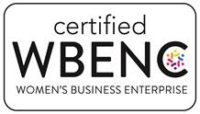Does your onboarding plan feel like throwing spaghetti at the wall and seeing what sticks?
All too often, the excitement of hiring a new team member is drowned out by the magnitude of the information needed to get them up and running. Without a strong and streamlined onboarding process, organizations face the consequences of a messy onboarding experience:
- Turnover can cost an organization 21% of a new employee’s annual salary to replace them.
- Poor onboarding processes due to inefficiencies lead to a nearly 20% attrition rate within an employee’s first six months.
- Disengaged employees cost organizations between $450 billion and $550 billion annually in lost productivity.
You know there has to be a systematic way to set new hires up for success while streamlining the process. We know this, too, so we created the ultimate eight-step checklist to get new hires up to speed.
For now, we’ll share three ways to set up your new hires for success (and stop throwing spaghetti at the wall):
1. Create a new hire checklist.
Put all the “to-do list” ideas living rent-free in your head on paper with a simple and effective checklist. An organized checklist includes steps such as:
- Creating an email address,
- Purchasing a laptop,
- Adding new hires to your organization’s software platforms.
Writing these steps ensures that “must-do” items aren’t missed and reduces delays in the onboarding process.
Bonus: Consider implementing a week-long onboarding experience that breaks down the activities new hires will engage in hourly, day by day. Research points out that systematic onboarding sets up new hires 50% faster, meaning employees can jump into providing quality work faster and more efficiently.
2. Make tech onboarding easy.
A Fortune article said that 96% of executives want workers to adopt AI. Their team? Not so much.
Learning the ropes and utilizing new tech at its max power with little to no training can cause frustration and confusion, leaving employees feeling lost.
Make sure new hires have a “how to use” guideline available for all technology they’ll use regularly. Many guidelines may be found online, either created by the software developer or on YouTube by accredited sources.
For tools developed in-house, create your own step-by-step instructions to guide new hires.
Bonus: Standard Operating Procedures (SOPs) are a tech program’s best friend. Work with a subject matter expert who understands the technology like the back of their hand to write or film a step-by-step guide on how to use it.
3. Connect new employees from the start.
Ditch the dreaded HR paperwork frenzy that first days are known for (there’s plenty of time for that later). Instead, prioritize in-person or remote meet-and-greets with the folks your new hire will interact with or work directly with.
Create a list of people you’d like your new hires to meet, such as their manager/supervisor, C-suite leaders, colleagues, and clients. Work backward: Start company-wide, then department-specific, then role-specific.
Engaging your employees from day one not only gets them up to speed on the tools and tech they need but also embeds them into your company culture by engaging directly with the people powering your company.
Bonus: Keep the momentum building for new team members by prioritizing connecting on a personal level. Schedule regular conversations (monthly 1:1 check-ins or bi-annual check-ins) to connect and build trust with your employees in a personal manner–outside their regular tasks, roles, and responsibilities. It’s your chance to truly listen, understand their perspectives, and ensure your employees feel valued as individuals, not just cogs in the machine.
So there you have it. Our top tips for a foolproof onboarding plan to give your rockstar new hire the tools and resources to hit the ground running.
Interested in the other steps?
Check out our eight-step guide to getting new hires up to speed quickly here.









